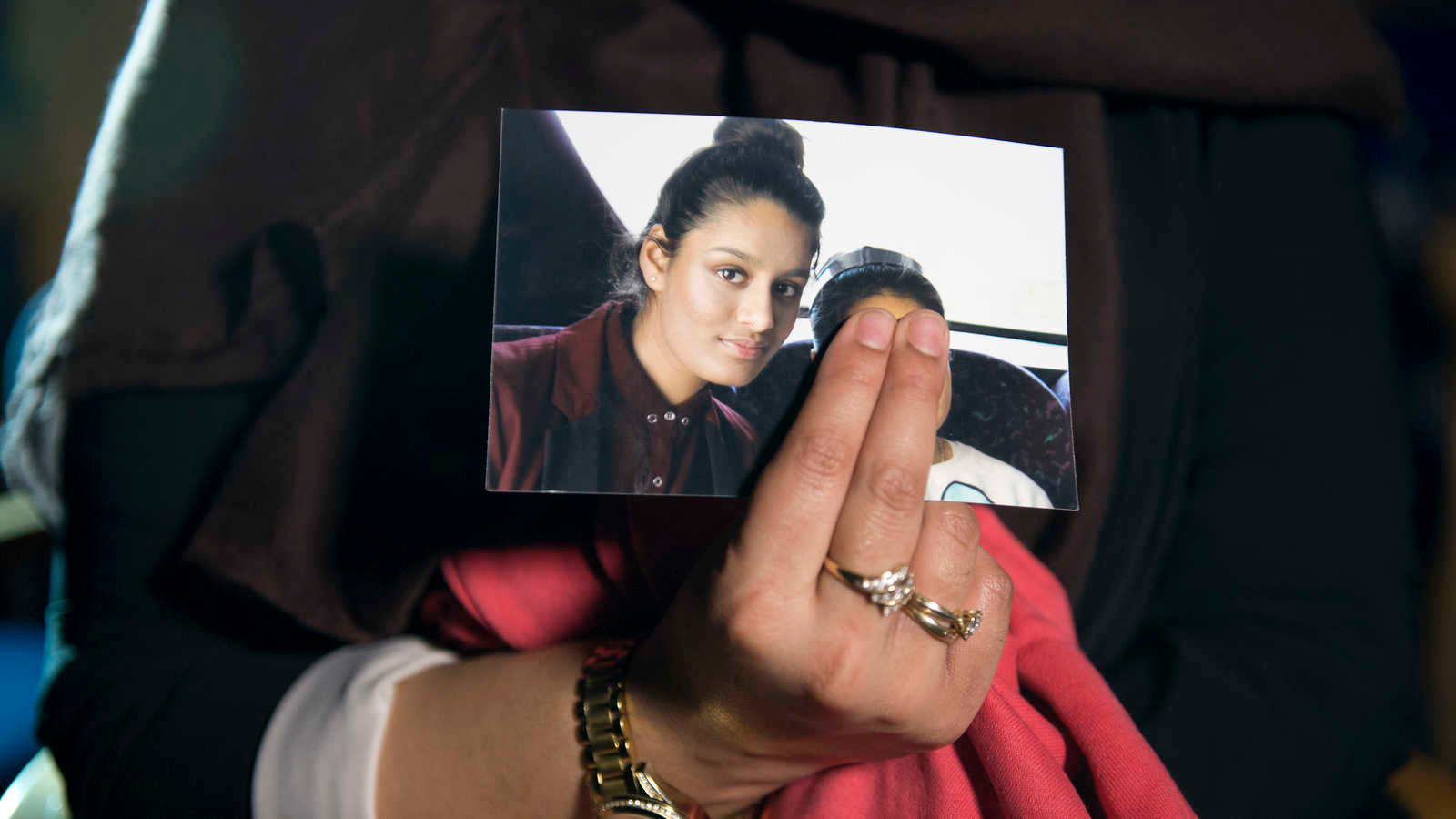Begum, whose British citizenship was revoked on national security grounds in 2019, is challenging the revocation from a displacement camp in Syria.
The UK Supreme Court ruled Friday that Shamima Begum, who left London as a teen to join the Islamic State in Syria, cannot return to the United Kingdom to fight the British government’s decision to revoke her citizenship.
The ruling overturns a lower court judgment in July that said Begum, now 21, should be allowed to come back to her home country to participate in her citizenship case. But in November, the Home Office appealed the ruling on national security grounds, saying Begum’s return would “expose the public to an increased risk of terrorism.”
In 2015, Begum and two classmates from east London’s Bethnal Green neighborhood boarded a flight to Istanbul and from there slipped across the border into Syria. Shortly after arriving in the Islamic State capital of Raqqa, then-15-year-old Begum married a Dutch militant. They had three children, all of whom died as infants, she said.
Begum, who is currently detained in a Kurdish-run displacement camp in Syria, spurred an intense debate over “Islamic State brides” who traveled to Syria and Iraq to join the terrorist group and whether Western governments should repatriate and prosecute them.
Then-Home Secretary Sajid Javid stripped Begum of her citizenship in February 2019, saying that because both of Begum’s parents are citizens of Bangladesh, she too was entitled to citizenship in the South Asian country. But Bangladesh’s Foreign Ministry said the England-born teen was not one of its citizens, had never visited the country and “there is no question” that she would be denied entry.
Lawyers for Begum are appealing the removal of her citizenship, and had fought for their client to be allowed to return home to challenge her case in court. They argued she was unable to mount an effective case from Syria, in part because she can’t speak with her lawyers confidentially from her camp.
But in a unanimous decision Friday, the UK’s Supreme Court ruled that Begum’s rights were not violated by the Home Office when she was told she couldn’t return.
“The right to a fair hearing does not trump all other considerations such as the safety of the public,” said Robert Reed, president of the Supreme Court. “If a vital public interest makes it impossible for a case to be fairly heard, then the courts cannot ordinarily hear it.”
UK Home Secretary Priti Patel welcomed the court’s ruling Friday, saying it “reaffirmed the home secretary’s authority to make vital national security decisions.”
Begum is among roughly 10,000 foreign women and children with perceived links to the Islamic State who are living in “subhuman” conditions in camps across northeastern Syria. Earlier this month, the UN called on 57 countries, including France, the United States and Russia, to reclaim their nationals from the camps.
 Eurasia Press & News
Eurasia Press & News




